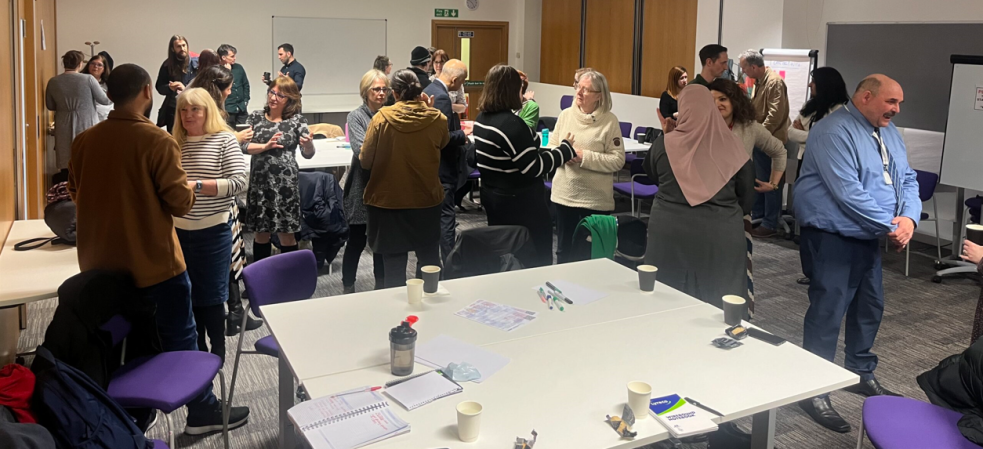The CoREN: bridging the gap between research and communities
The Community Research and Engagement Network (CoREN) aims to advance participatory approaches within health and social care research by increasing collaboration.
A case study from Steven Dodd, Research Associate at Lancaster University.

The Community Research and Engagement Network (CoREN) was created to facilitate participatory health and social care research by connecting communities, researchers, and public sector practitioners. Spanning a diverse region from South Cumbria to Cheshire, the CoREN places a particular emphasis on fuelling research collaborations involving voluntary, community, faith, and social enterprise (VCFSE) groups.
Unlike short-term, project-specific co-production initiatives, the CoREN is intended as a sustainable and lasting foundation for building research relationships. Its leadership group - comprising representatives from VCFSE organisations, researchers, and public advisers - reflects its commitment to participatory principles, with the group playing a key role in decision-making over the CoREN’s strategic direction.
This case study draws on a recent evaluation of CoREN, exploring the factors behind its successes, and offering lessons applicable to other co-production initiatives.
Purpose
The CoREN’s purpose is to tackle health and social care inequalities in North West England. Its overarching goal is to create a sustainable platform that bridges the gaps between communities, VCFSE organisations, researchers, and practitioners, and enabling equitable collaboration on health and social care research.
It aims to identify community priorities for research, promote research literacy, and empower community members and VCFSE organisations to influence the research agenda. The CoREN’s creation was motivated by the need for a more participatory approach to research, recognising that traditional models often exclude marginalised communities and perpetuate inequities.
Approach
At the heart of the CoREN’s mission is its commitment to fostering collaboration, mutual learning, and inclusion in research. It aims to promote open dialogue, equitable participation, and reciprocal learning between researchers, community members, and practitioners. This entails engaging marginalised groups in the research process to maximise equity and diversity in the collaborations it facilitates.
Legacy
The CoREN’s most enduring legacy may lie in the relationships it has helped to build, which last well beyond the life cycle of individual research projects and have the potential to inform many more in future. Acting as an intermediary, the CoREN has facilitated partnership synergies*, where the combined resources and perspectives of multiple partners lead to outcomes that none could achieve alone.
This was apparent in evaluation data which highlighted the unexpected connections and opportunities that emerged through the CoREN’s work, with one researcher comparing it to “planting seeds and watching the oak tree grow.” This metaphor captures the long-term, facilitative and generative nature of CoREN’s impact, offering a powerful model for others wishing to achieve co-production through decentralised and non-hierarchical organisational structures. Its example to others also lies in promoting a norm of community involvement throughout the research process, contributing to cultural shifts in the region and sector by encouraging participatory research as standard practice.
Despite these achievements, the CoREN’s work is far from finished. In a climate in which non-participatory research practices are still the default approach, the CoREN’s progress in maximising its geographical and cultural reach, communicating its decentralised organisational structure, and continuing to push for deeper community involvement in all stages of research will be critical to the advancement of the co-production agenda in North West England.
This case study is supported by the National Institute for Health Research Applied Research Collaboration North West Coast (ARC NWC). The views expressed in this publication are those of the author and not necessarily those of the National Institute for Health Research or the Department of Health and Social Care.
*Jagosh, J., Bush, P.L., Salsberg, J., Macaulay, A.C., Greenhalgh, T., Wong, G., Cargo, M., Green, L.W., Herbert, C.P. and Pluye, P., 2015. A realist evaluation of community-based participatory research: partnership synergy, trust building and related ripple effects. BMC public health, 15(1), pp.1-11.